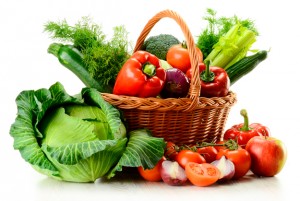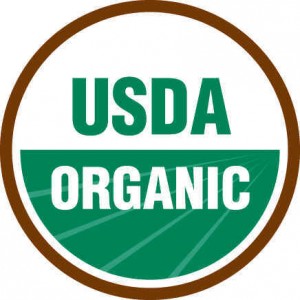 Organic veggie gardening appears to be the trend nowadays as even more people have become aware of exactly what they are consuming. This is because standard methods which entail using hazardous chemicals may enter our systems.
Organic veggie gardening appears to be the trend nowadays as even more people have become aware of exactly what they are consuming. This is because standard methods which entail using hazardous chemicals may enter our systems.
In order to regulate the problem, the US Department of Agriculture has issued a new directive. This urges farmers to change to chemical-free farming.
With chemical-free farming, farmers will no longer need to plant crops making use of genetic modification, irradiation and sewage sludge. Instead, this will be replaced with plant rotation.
Plant rotation is the technique of growing a various crop in the same location where another crop once occupied. This keeps the dirt’s nutrients abundant so it can be used once again in the next season.
If you think about it, this technique is much easier said than done as farmers are accustomed to the old ways of doing it. To help them change their minds, the government offers motivations and aids to farmers that determine to follow this practice.
Yet the main reason why organic veggie gardening is so crucial is the fact that the plants collected have 50 % more nutrients and vitamins compared with that of conventional farming methods.
This means the food they consume will decrease the danger of individuals experiencing a variety of conditions like diabetic issues, hypertension, cardiovascular disease and specific cancers cells.
Children who consume milk will be able to obtain even more anti-oxidants, CLA, Omega 3 and vitamins when this is removed from pastured foraged cows that will actually reinforce their bones and muscular tissues.
You can purchase organically grown vegetables from the grocery store. The depressing component is that almost everywhere you go, although the packaging originates from Department of Health, Quality Assurance International, California Certified Organic Farmers or the Oregon Tilth Farm Verified Organic, the majority of these are only 50 % to 70 % organic.
This is why residents that wish to consume 100 % organic vegetables are motivated to expand these themselves.
There are two means making this take place. First, you acquire the seeds and plant them, and care for them until harvest. Second, you buy them fully grown and after that merely plant it right into the ground.
Most people choose the very first since it makes them proud to know that what is offered on the table was done from scratch.
In both proceedings, you need to prepare the soil, use compost and see to it that these are secure from hazards such as pests, weeds and other animals that will eat just what you have planted.
You can fight these with other animals, bugs, natural fertilizers, antiperspirant soap and a couple of various other things which you could learn after doing some study.
For those who don’t have a big yard, they could attempt growing these organically grown veggies in containers. They require more water compared to those planted in the dirt so give doses regularly.
There is no question that organic vegetables and various other items are essential these days. If you value your health and wellness and those of your family you could buy these from the store or plant it on your own.
For those who decide to purchase organically grown vegetables, bear in mind to wash before cooking them. This will eliminate any sort of hazardous materials or deposit that could still be there which is unseen to the naked eye.
 groups started seriously pressuring for federal government regulation of organic production. The federal government started taking the first steps towards managing organic, and so-called health foods.
groups started seriously pressuring for federal government regulation of organic production. The federal government started taking the first steps towards managing organic, and so-called health foods.